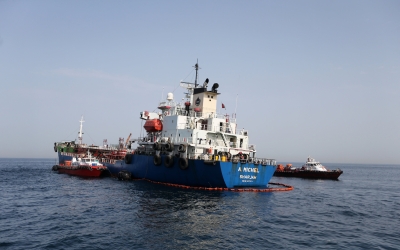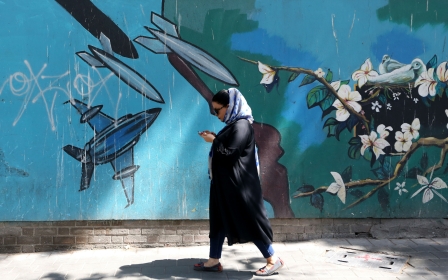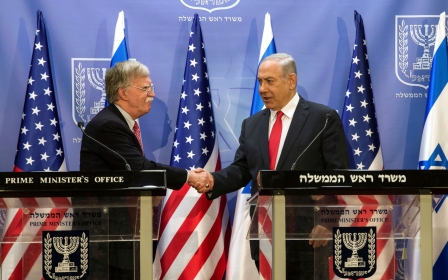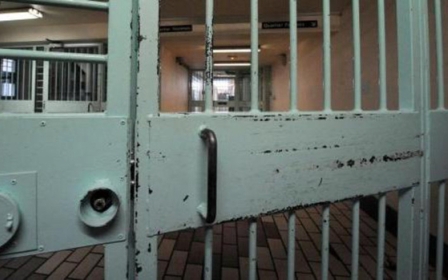Trump says countries should protect their own ships in the Gulf amid Iran tensions
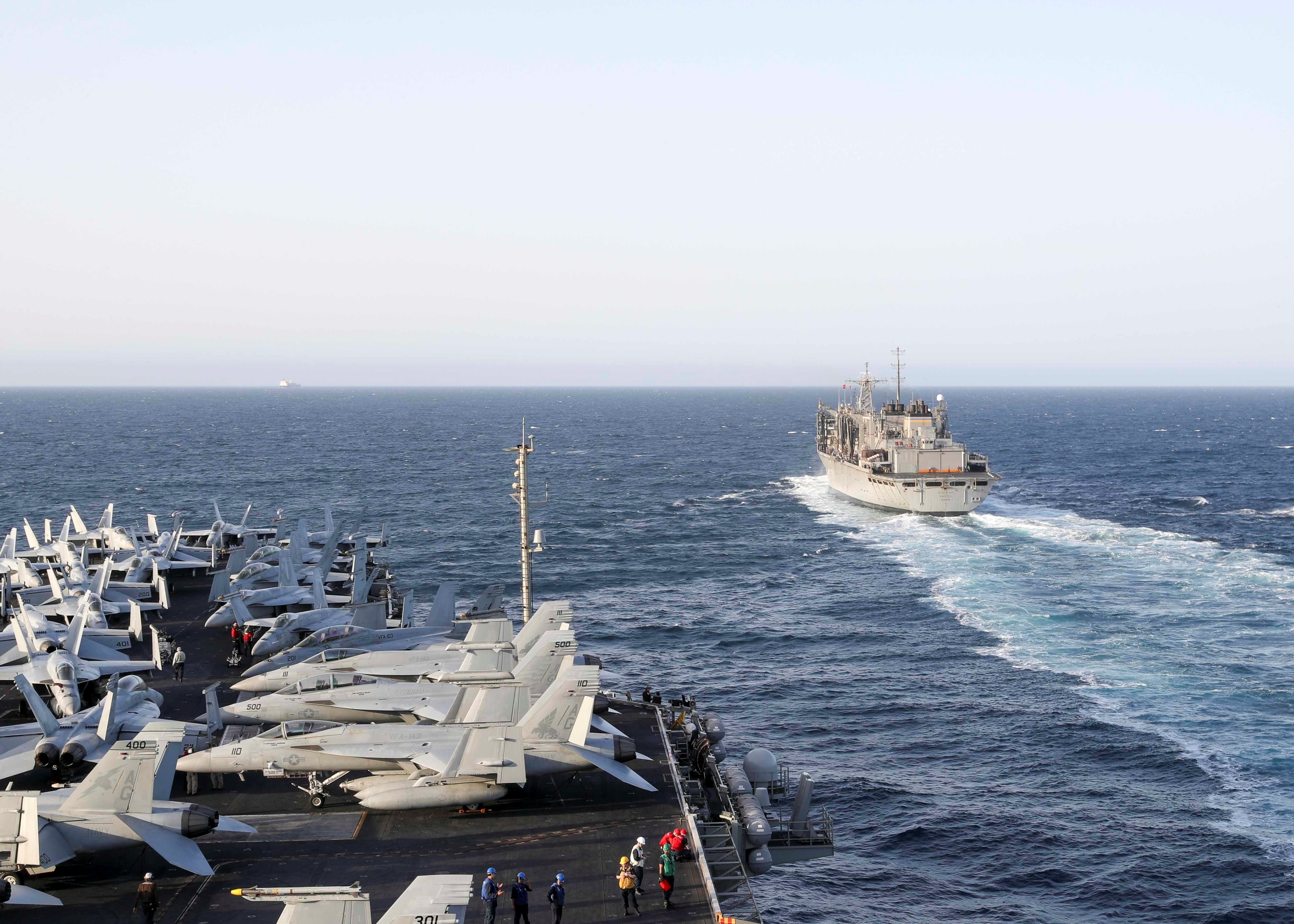
Donald Trump has called on countries to protect their own ships from Iran as they pass through the Strait of Hormuz, saying that US troops do not "even need to be" in the Gulf.
The US president noted that China and Japan get the bulk of their oil imports through the Gulf, arguing that it is not Washington's job to safeguard the strategic waterways in the region.
"So why are we protecting the shipping lanes for other countries (many years) for zero compensation," Trump wrote on Twitter on Monday.
His remarks come a few days after he called off military strikes against Iranian targets amid increased tensions between Washington and Tehran.
New MEE newsletter: Jerusalem Dispatch
Sign up to get the latest insights and analysis on Israel-Palestine, alongside Turkey Unpacked and other MEE newsletters
Iranian foreign minister Mohammed Javad Zarif agreed with Trump on Monday, saying the "US military has no business" in the Gulf.
"Removal of its forces is fully in line with interests of US and the world," he added on Twitter.
.@realDonaldTrump is 100% right that the US military has no business in the Persian Gulf. Removal of its forces is fully in line with interests of US and the world. But it's now clear that the #B_Team is not concerned with US interests—they despise diplomacy, and thirst for war.
— Javad Zarif (@JZarif) June 24, 2019
Early in May, US officials warned that Iran is planning attacks against US troops and interests in the Middle East.
Since then, Washington has blamed Tehran for a series of attacks in the region, including the sabotage of four ships off the coast of the United Arab Emirates and two oil tankers in the Gulf of Oman.
Iran has denied responsibility for the attacks.
"All of these countries should be protecting their own ships on what has always been a dangerous journey," Trump said.
"We don’t even need to be there in that the U.S. has just become (by far) the largest producer of Energy anywhere in the world! The U.S. request for Iran is very simple - No Nuclear Weapons and No Further Sponsoring of Terror!"
Late last Thursday, Trump aborted military attacks that he had authorised against Iran, after the Islamic Republic downed a US drone, claiming that it was flying in its airspace.
US officials have said that the unmanned plane was over international waters.
Trump's statement on Monday appears to be a reversal of decades of US policy of protecting commercial ships in the area.
At the height of the Iran-Iraq war in 1987, the US Navy began escorting Kuwaiti vessels through the Gulf as both sides of the conflict threatened shipping lanes in the region.
Later on Monday, a senior State Department official said Washington is working on building an international coalition to secure shipping lanes in the Gulf.
"It's about proactive deterrence because the Iranians just want to go out and do what they want to do and say hey we didn't do it. We know what they've done," the official said, as reported by Reuters news agency.
'Nothing to do with oil'
In an interview with NBC News on Sunday, the US president also downplayed the tensions over the tankers' attacks, saying that the standoff was "not about the straits", but what concerns him is Iran's nuclear programme.
"It has nothing to do with oil," he said.
Last year, Trump pulled the US out of a multilateral agreement that saw Tehran drastically scale back its nuclear programme in exchange for the lifting of economic sanctions.
Other signatories to the deal, including the European Union and Russia had urged Washington to stay in the agreement.
Iran has threatened to stop compiling with parts of the pact, but late last month, the UN nuclear watchdog (IAEA) certified that Tehran is still operating within the limits of the agreement.
"I'm not looking for war, and if there is, it will be obliteration like you've never seen before," Trump said on Sunday.
In the interview, Trump also revealed that he called Saudi Arabia's Crown Prince Mohammed bin Salman, asking him to pay for the "very expensive operation" to protect the Gulf from Iran.
Asked whether he raised concerns with bin Salman over the murder of Jamal Khashoggi after the release of a UN report that confirmed the gruesome details of the killing, Trump said the matter "didn't come up in that discussion".
UN special rapporteur Agnes Callamard had urged Washington last week to open up its own investigation into the killing and determine the involvement of the crown prince.
Khashoggi, a Virginia resident and Washington Post columnist, was murdered by Saudi government agents at the country's consulate in Istanbul last October.
In Sunday's interview, Trump dismissed the possibility of an FBI probe on the journalist's death, highlighting that Riyadh buys billions of dollars worth of weapons from the US.
He also called the Middle East a "hostile place", arguing that other countries in the region abuse human rights as well.
"If you're going to look at Saudi Arabia, look at Iran, look at other countries - I won't mention names - and take a look at what's happening," he said.
Middle East Eye delivers independent and unrivalled coverage and analysis of the Middle East, North Africa and beyond. To learn more about republishing this content and the associated fees, please fill out this form. More about MEE can be found here.


